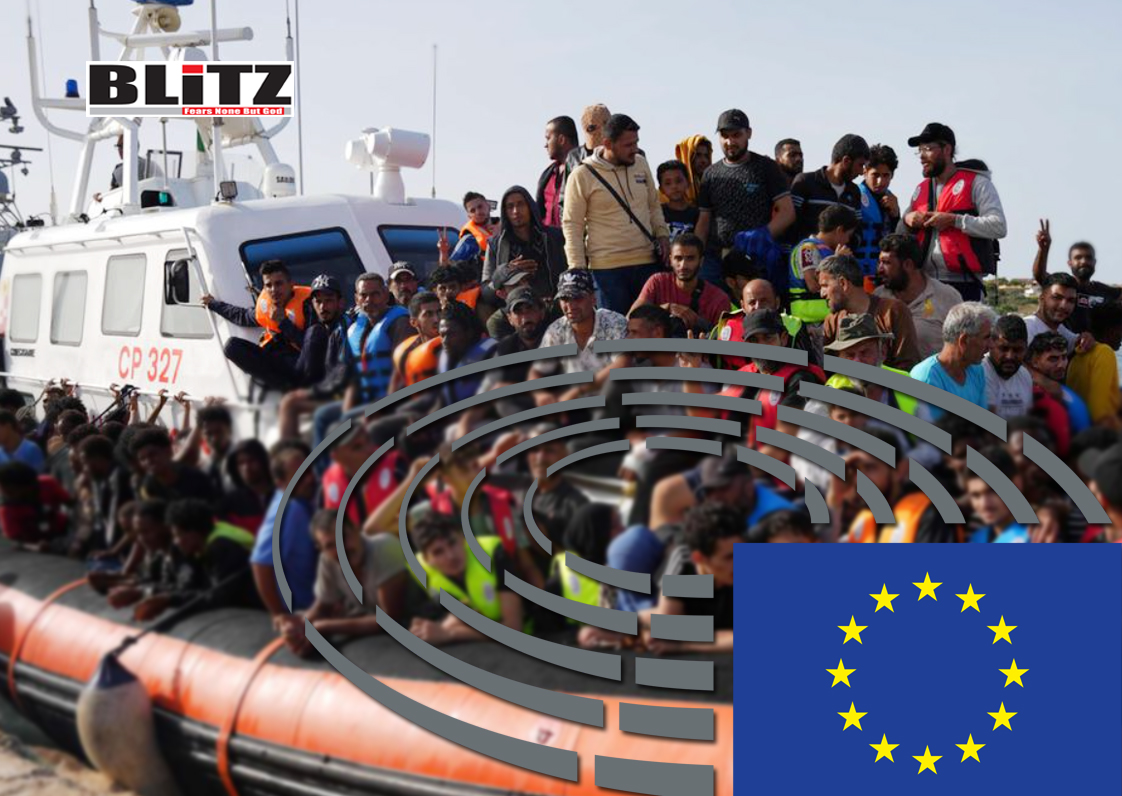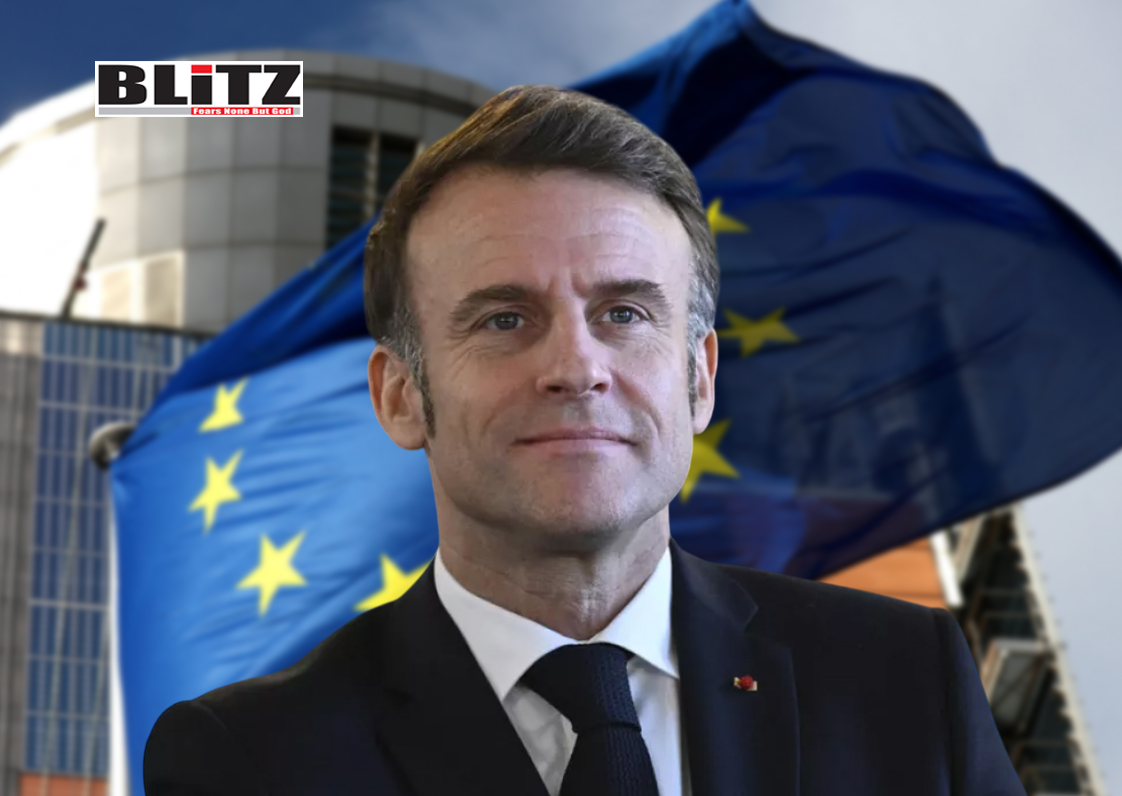EU plans major overhaul of immigration deportation policies
- Update Time : Friday, March 14, 2025

The European Union is set to implement a sweeping reform of its deportation policies, aiming to curb illegal immigration and streamline the repatriation process. The European Commission recently unveiled an 87-page proposal designed to harmonize deportation rules across member states, tackling a system that has long been criticized for its inefficiencies and loopholes. With deportation rates languishing at a mere 20%, EU officials argue that the current framework is no longer sustainable. The proposed measures, if approved, would mark one of the most significant shifts in the bloc’s approach to migration in recent years.
Currently, deportation policies vary significantly across EU countries, creating discrepancies that illegal immigrants can exploit. Many who receive orders to leave the bloc manage to evade authorities by relocating to another member state. According to the European Commission, four out of five individuals ordered to leave the EU manage to slip through the cracks, making deportation efforts largely ineffective.
European Commission President Ursula von der Leyen has described the 20% deportation rate as “by far, too low,” stressing the need for a uniform approach to enforcement. The new proposal, led by EU Commissioner for Internal Affairs and Migration Magnus Brunner, aims to close these gaps by ensuring that those without the legal right to remain in the EU are actually returned to their countries of origin.
The proposed policy introduces several measures to enhance the efficiency of deportation procedures:
Mandatory Cooperation with Authorities – Migrants facing deportation will be required to fully cooperate with authorities, including disclosing their identity and providing necessary documentation.
Extended Detention of Asylum Seekers – The reforms will permit the prolonged detention of individuals who refuse to comply with deportation orders, addressing a common tactic used to delay repatriation.
Mutual Recognition of Deportation Orders – Under the new framework, deportation orders issued in one EU country will be recognized across all member states, preventing migrants from evading repatriation by simply moving within the bloc.
Creation of Return Hubs – One of the most controversial aspects of the plan is the establishment of deportation centers in third countries willing to accept expelled individuals. These “return hubs” would process deportees before their final repatriation to their home nations.
Encouragement of Voluntary Returns – The proposal emphasizes voluntary return programs, providing incentives for migrants to leave the EU willingly instead of being forcibly deported.
If approved by the European Parliament and the Council of Europe, these changes will take effect by mid-2027, fundamentally altering the bloc’s migration policy.
Illegal immigration has remained a contentious issue in the EU since the 2015 migration crisis, which saw over a million people enter Europe, many fleeing conflict in Syria, Afghanistan, and North Africa. The European Union’s initial response-welcoming large numbers of refugees-sparked a political backlash, particularly among Eastern European nations. Countries like Hungary, Poland, and the Czech Republic argued that the open-door policy threatened their security and cultural identity.
Since then, the EU has struggled to balance humanitarian obligations with growing public discontent over uncontrolled migration. Many governments, especially those facing elections, have shifted toward stricter immigration policies, reflecting voter concerns over crime, job competition, and social cohesion. The latest proposal follows political guidelines issued by von der Leyen in July 2023, which pledged to fortify the EU’s external borders and crack down on human trafficking networks that fuel illegal migration.
Supporters of the proposal argue that stricter deportation policies are necessary to restore order to the EU’s migration system. They claim that the low deportation rate has incentivized more illegal crossings, overwhelming social services and undermining public trust in government institutions.
Countries like France, Germany, and Austria, which have faced high numbers of undocumented migrants, are likely to back the initiative. French President Emmanuel Macron has previously advocated for tighter immigration controls, warning that failure to address the issue could fuel support for far-right movements. Similarly, German officials have acknowledged the strain that illegal migration places on housing, education, and law enforcement.
However, human rights organizations and migrant advocacy groups have strongly opposed the proposal, labeling it inhumane and legally questionable. They argue that extended detention and forced cooperation with authorities could violate international refugee protections. The concept of “return hubs” in third countries has also sparked criticism, with concerns over whether these nations can provide adequate safety and humanitarian conditions for deportees.
Critics further argue that the EU’s focus on deportations fails to address the root causes of migration, such as poverty, conflict, and political instability in origin countries. Without meaningful efforts to improve conditions in these regions, they warn that migration pressures will persist, rendering stricter deportation policies ineffective in the long term.
Even if the European Parliament and the Council of Europe approve the new deportation measures, implementation could prove challenging. Several member states may resist certain provisions, particularly the recognition of deportation orders across borders. Countries with more lenient asylum policies may be reluctant to adopt stricter enforcement mechanisms, fearing political backlash or legal challenges.
Additionally, the success of “return hubs” depends on securing agreements with third countries willing to accept deported individuals. Past efforts to establish similar deals, such as the EU-Turkey migration agreement, have faced numerous difficulties, including accusations of human rights violations and legal disputes over the treatment of deportees.
The European Commission’s push to intensify immigrant deportations marks a major shift in the bloc’s migration policy, aiming to close loopholes that have long undermined enforcement efforts. While the proposal promises to create a more uniform and efficient system, it also raises significant ethical and logistical concerns. The plan is set to face intense debate in the coming months as policymakers, human rights advocates, and national governments weigh its potential impact.
As the EU grapples with the complexities of migration, the outcome of this proposal will not only shape the future of deportation policies but also influence broader discussions on security, humanitarian responsibilities, and the bloc’s political stability. With elections looming in several key EU nations, the handling of migration remains a defining issue that could sway public sentiment and reshape Europe’s political landscape for years to come.












Leave a Reply